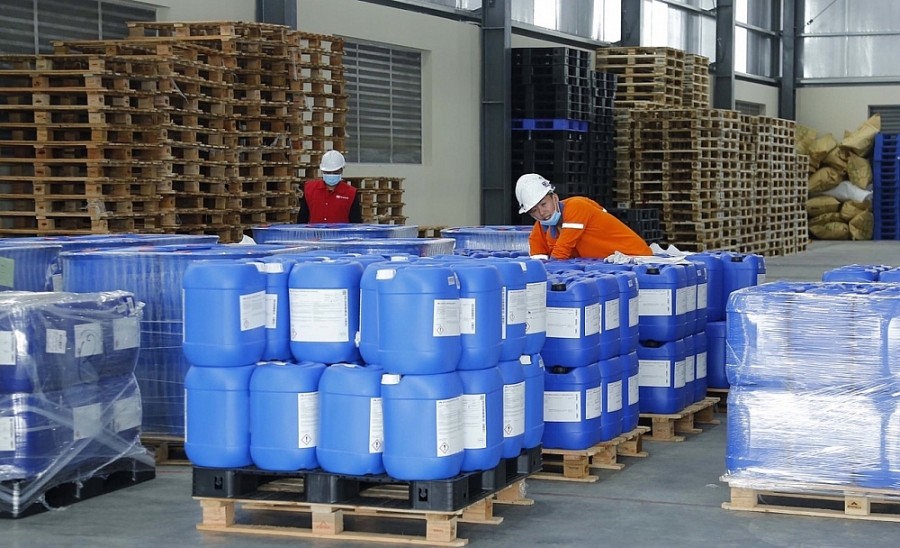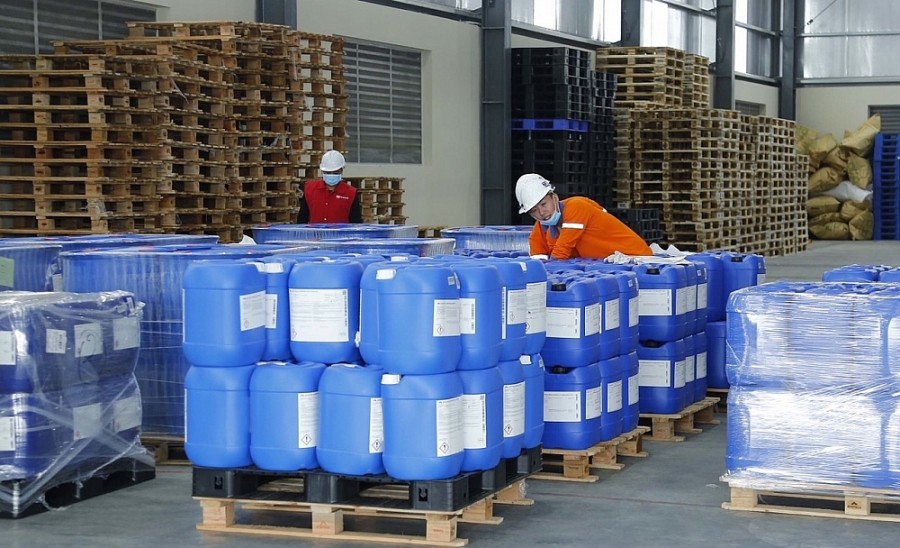
Amendments to the Chemical Law: Proposing 6 main policy groups.
The amended Chemical Law will focus on addressing 6 major policy groups to enhance the effectiveness of state management in the chemical industry.
Reviewing and amending the 2007 Chemical Law: Meeting practical requirements. A new step in chemical management.
Amending the Chemical Law is necessary
The Ministry of Industry and Trade is proposing the construction of amendments and supplements to certain provisions of the Chemical Law to enhance the effectiveness and efficiency of state management in the development of the chemical industry, chemical management, and minimize the risks posed to public health, the environment, and social assets by chemical activities.

The construction of amendments and supplements to certain provisions of the Chemical Law is highly necessary.
According to the Ministry of Industry and Trade, the Chemical Law No. 06/2007/QH12 was approved by the 2nd session of the 12th National Assembly on November 21, 2007, and became effective on July 1, 2008. It serves as a quick and timely institutionalization and implementation of the Party’s and State’s principles and policies. The enactment of the Chemical Law is a significant milestone in the process of constructing and establishing an official and unified legal framework for chemical activities nationwide.
However, in recent times, many legislative documents have been replaced or amended and supplemented with various new provisions compared to the time when the Chemical Law was enacted. These include the Investment Law, the Law on Issuance of Legal Normative Documents, the Law on Drug Prevention and Control, the Law on Management and Use of Weapons, Explosives, and Supporting Tools, and the Law on Environmental Protection, among others. These changes require corresponding adjustments to the guiding documents for the implementation of the Chemical Law, gradually reducing the harmonization and uniformity within the entire system of regulations on chemical management.
In addition, many policies of the Party and laws of the state have undergone significant changes, such as the direction of administrative procedure reform and modernization, the shift from pre-inspection to post-inspection management, regulations on investment activities, the promotion of e-government and the establishment of a digital government and digital economy in line with the trends of the Fourth Industrial Revolution. There is also a focus on developing “foundational industries,” emphasizing rapid and sustainable development based primarily on science and technology, innovation, and digital transformation. The management, exploitation, and efficient and sustainable use of resources, with the protection of the environment and the health of the people as the top priorities, are emphasized. There is a resolute effort to eliminate projects causing environmental pollution, ensure the quality of the living environment, protect biodiversity and ecosystems, and build a green, circular, and environmentally friendly economy.
Through practical observation and state management of chemical activities, as well as the evaluation of the implementation of the Chemical Law in practice, it has been noted that the Chemical Law and related legislative documents governing chemical activities have encountered certain issues and shortcomings that require necessary amendments and supplements.
Therefore, the development of a Law amending and supplementing a number of articles of the Law on Chemicals is extremely necessary, in order to increase efficiency and effectiveness in state management, remove barriers, and create a favorable legal corridor. benefits for investors, contributing to improving the attractiveness of the investment environment in the chemical sector.
Proposing 6 groups of policies
According to the Chemical Department (Ministry of Industry and Trade), in the context that Vietnam is deeply integrating with the global economy when participating in many Free Trade Agreements (FTAs), as an intermediate product for chemical products and services. industrial development. Therefore, the signed and effective bilateral and multilateral FTAs are an opportunity to attract foreign and domestic investors into the chemical sector. In particular, with the ongoing wave of investment shifting and restructuring of industrial products in the world as well as in the region, there are opportunities that need to be seized to create advantages for the development of the chemical industry. However, in order to be able to accept this advantage, appropriate policies are needed, of which the most important is the Law on Chemicals, which must have guidelines.
Therefore, amending and supplementing a number of articles of the Law on Chemicals will improve the feasibility of the Law on Chemicals and ensure the uniformity and consistency of the legal system, in line with the international commitments that Vietnam has made. Male participation; renew and improve the effectiveness and efficiency of state management in the field of chemicals.
Besides, ensuring the legitimate rights and interests of investors, organizations and individuals in the field of chemicals; create a more specific legal basis on mechanisms and policies for chemical enterprises and investors in the chemical field; attracting foreign and private investment to develop the chemical industry.
To achieve the above goals, besides inheriting the main contents of the 2007 Law on Chemicals, the revised Law on Chemicals will focus on addressing 06 major policy groups, specifically:
Policy 1: Specify more specifically the subject and scope of application of the Law on Chemicals.
Policy 2: Sustainably develop the chemical industry into a foundational, modern industry.
Policy 3: Synchronous chemical management throughout the entire life cycle.
Policy 4: Manage chemicals in products.
Policy 5: Improve the effectiveness of chemical safety assurance.
Policy 6: Regulation on chemical information.
